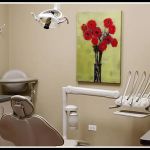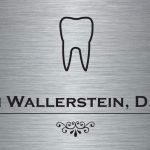Understanding the Causes of Jaw Clicking and Tooth Sensitivity
- What is Jaw Clicking?
- What Causes Tooth Sensitivity?
- The Connection Between Jaw Clicking and Tooth Sensitivity
- Preventing and Managing Jaw Clicking and Tooth Sensitivity
- When Should You Seek Professional Help?
What is Jaw Clicking?
Jaw clicking refers to the audible sound or sensation that occurs when the jaw joint moves. This clicking sound is usually linked to the temporomandibular joint (TMJ), which connects the lower jaw to the skull. TMJ disorders can cause clicking, popping, or even pain in the jaw area. Though jaw clicking can be harmless in some cases, it may indicate a deeper issue such as muscle tension, jaw misalignment, or an injury to the jaw.
What Causes Tooth Sensitivity?
Tooth sensitivity occurs when the protective layer of enamel on your teeth wears down or the gum tissue recedes, exposing the underlying nerve endings. This exposure can lead to discomfort or pain when eating certain foods or drinking hot or cold beverages. Common causes of tooth sensitivity include gum disease, cavities, worn fillings, and brushing too aggressively. Additionally, teeth grinding or clenching, often linked to stress, can exacerbate sensitivity.
The Connection Between Jaw Clicking and Tooth Sensitivity
While jaw clicking and tooth sensitivity might seem unrelated, they can sometimes be connected through bruxism (teeth grinding) or temporomandibular joint disorders (TMJ). Bruxism involves grinding or clenching your teeth, often during sleep, which can lead to both jaw clicking and increased tooth sensitivity. The forceful grinding or clenching can wear down enamel and put strain on the jaw muscles, causing discomfort in both areas.
Preventing and Managing Jaw Clicking and Tooth Sensitivity
Managing jaw clicking and tooth sensitivity often involves addressing the underlying causes. To reduce jaw clicking, consider practicing relaxation techniques to alleviate stress, which is a common trigger for teeth grinding. A dentist may also recommend a mouthguard to protect your teeth from damage during sleep. For tooth sensitivity, using a toothpaste specifically designed for sensitive teeth, and avoiding overly acidic or hot/cold foods can provide relief. Regular dental check-ups are essential to identify early signs of damage and address potential issues before they worsen.
When Should You Seek Professional Help?
If jaw clicking is accompanied by pain or difficulty moving the jaw, it’s important to consult a dentist or TMJ specialist. Persistent tooth sensitivity that doesn’t improve with over-the-counter products may also require professional attention. A dentist can evaluate your condition, offer treatment options such as custom mouthguards or other dental interventions, and guide you in preventing further damage.







 Creekside Dentistry4.0 (576 review)
Creekside Dentistry4.0 (576 review) Clove Dental Camarillo4.0 (225 review)
Clove Dental Camarillo4.0 (225 review) Lee Family Dentistry4.0 (116 review)
Lee Family Dentistry4.0 (116 review) Skidmore Timothy E DDS5.0 (6 review)
Skidmore Timothy E DDS5.0 (6 review) Wallerstein Seth DMD5.0 (301 review)
Wallerstein Seth DMD5.0 (301 review) Rhode Island Children's Dentistry & Orthodontics4.0 (806 review)
Rhode Island Children's Dentistry & Orthodontics4.0 (806 review) The Importance of Oral Health Education During Pregnancy for a Healthy Pregnancy
The Importance of Oral Health Education During Pregnancy for a Healthy Pregnancy Best Tips for Brushing Your Teeth Properly for Healthy Gums: Essential Techniques for Oral Health
Best Tips for Brushing Your Teeth Properly for Healthy Gums: Essential Techniques for Oral Health Why Skipping Dental Checkups Can Lead to Bigger Oral Health Problems
Why Skipping Dental Checkups Can Lead to Bigger Oral Health Problems Advantages of Porcelain Dental Restorations
Advantages of Porcelain Dental Restorations How Can Diabetes Cause Tooth and Gum Problems? Preventing and Managing Oral Health Issues
How Can Diabetes Cause Tooth and Gum Problems? Preventing and Managing Oral Health Issues Healthy Habits for Promoting Good Oral Health and Hygiene: Tips for a Healthy Smile
Healthy Habits for Promoting Good Oral Health and Hygiene: Tips for a Healthy Smile